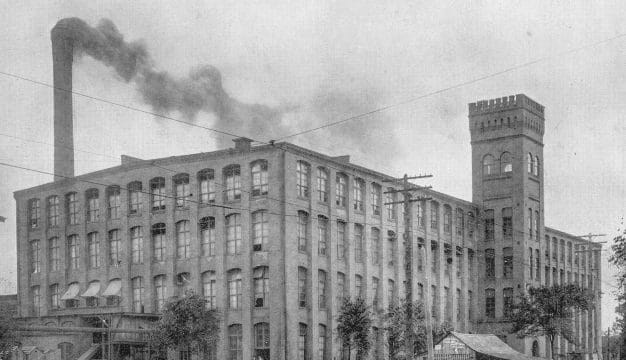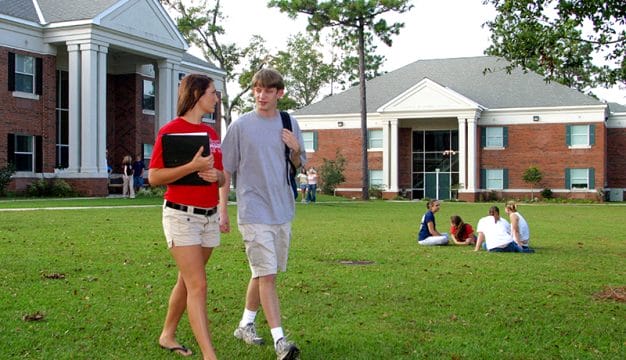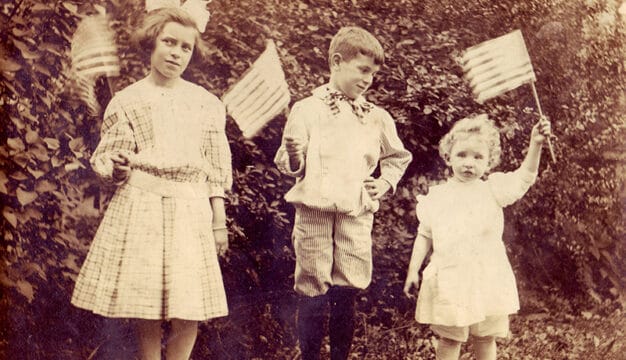Jacksonville State University
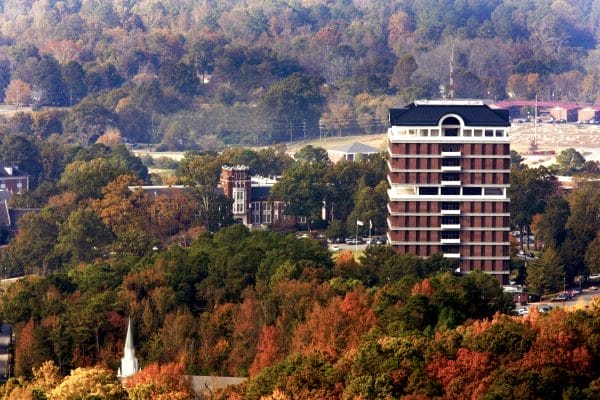 Jacksonville State University
From its origins as a two-year state normal school established to train teachers, Jacksonville State University (JSU) has grown into a major educational center in northeast Alabama. JSU offers more than 150 courses of study, including 24 graduate master’s degree programs, two graduate certificate programs, and an extensive distance-learning program. The university also offers pre-professional programs in medicine and law, criminal justice, social work, environmental management, and music. Located in Jacksonville, Calhoun County, the school’s 459-acre campus is almost equidistant from Anniston to the south and Gadsden to the north. The school also is situated just north of Interstate 20 nearly mid-way between Birmingham, Jefferson County, and Atlanta, Georgia.
Jacksonville State University
From its origins as a two-year state normal school established to train teachers, Jacksonville State University (JSU) has grown into a major educational center in northeast Alabama. JSU offers more than 150 courses of study, including 24 graduate master’s degree programs, two graduate certificate programs, and an extensive distance-learning program. The university also offers pre-professional programs in medicine and law, criminal justice, social work, environmental management, and music. Located in Jacksonville, Calhoun County, the school’s 459-acre campus is almost equidistant from Anniston to the south and Gadsden to the north. The school also is situated just north of Interstate 20 nearly mid-way between Birmingham, Jefferson County, and Atlanta, Georgia.
The institution that would become JSU was established on February 22, 1883, when Gov. Edward O’Neal signed into law a bill creating the State Normal School (SNS) at Jacksonville. The new school acquired the facilities and equipment of Calhoun College, which consisted of 12 acres of land and a two-story brick building and which closed upon its acquisition by the SNS. The State Normal School at Jacksonville offered a comprehensive teacher preparatory curriculum with strong emphasis in mathematics and English to train primary and intermediate school teachers and a two-year collegiate department.
The board of directors elected James C. Ryals Jr. as first president of the SNS at Jacksonville in 1883. Ryals, a native of Bartow County, Georgia, opened the new normal school with three instructors. His tenure, however, was short; on April 18, 1885, at the age of 30, he died after a nine-day bout of pneumonia. A few days later, the Board of Directors named J. Harris Chappell, a faculty member of the Columbus (Georgia) Female Academy, to complete Ryals’s term. After presenting diplomas to the first class in 1886, Chappell left for another post, and faculty member Carleton Bartlett Gibson, a Mobile native, stepped into the vacancy. Gibson served as president until 1892, when J. B. Jarrett took over for a brief time.
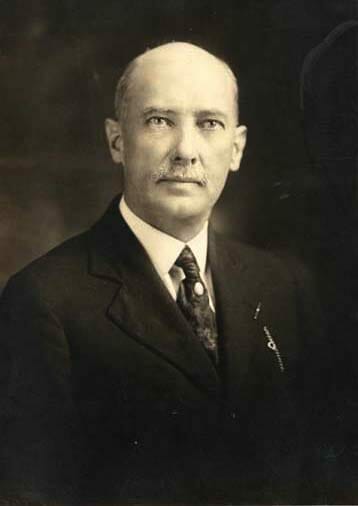 Clarence Daugette
In 1893, Jacob Forney IV, a Jacksonville native and an alumnus of the school’s very first graduating class, began a six-year term as president. In February 1897, the Alabama State Legislature established a separate public school district for Jacksonville and gave the SNS president the authority to serve as superintendent over all schools within the district. The act also provided that the public schools would serve as teacher training schools for the SNS. Forney’s brother-in-law Clarence W. Daugette, a science teacher at the school, succeeded him as president in 1899. In 1920, the school established extension programs that enabled grade-school teachers to take classes at more convenient times and locations.
Clarence Daugette
In 1893, Jacob Forney IV, a Jacksonville native and an alumnus of the school’s very first graduating class, began a six-year term as president. In February 1897, the Alabama State Legislature established a separate public school district for Jacksonville and gave the SNS president the authority to serve as superintendent over all schools within the district. The act also provided that the public schools would serve as teacher training schools for the SNS. Forney’s brother-in-law Clarence W. Daugette, a science teacher at the school, succeeded him as president in 1899. In 1920, the school established extension programs that enabled grade-school teachers to take classes at more convenient times and locations.
In 1921, the Alabama State Legislature appropriated funds to construct a building that is now called Kilby Hall and the core of Jacksonville Elementary Laboratory School. (This partnership continues to the present day, as JSU education majors still conduct their student teaching in Jacksonville City Schools.) Forney Hall, the men’s dormitory, was built on adjacent property in 1927. A significant change came in 1929 when the school became a four-year institution and was renamed the State Teachers College. A third year of curriculum was added in the fall quarter of that same year, and a fourth year was added the following fall. Also in 1930, Bibb Graves Hall was constructed to house classrooms and administrative offices; it now serves as JSU’s main administration building. The first bachelor of science degree in the field of education was awarded in 1931, and five years later, the college earned regional accreditation from the Southern Association of Colleges and Schools. Despite the Great Depression, the school thrived, adding many buildings to the campus during the 1930s, including Ramona Wood Library, Daugette Hall, Hammond Hall, J. W. Stephenson Gymnasium, and Abercrombie Hall.
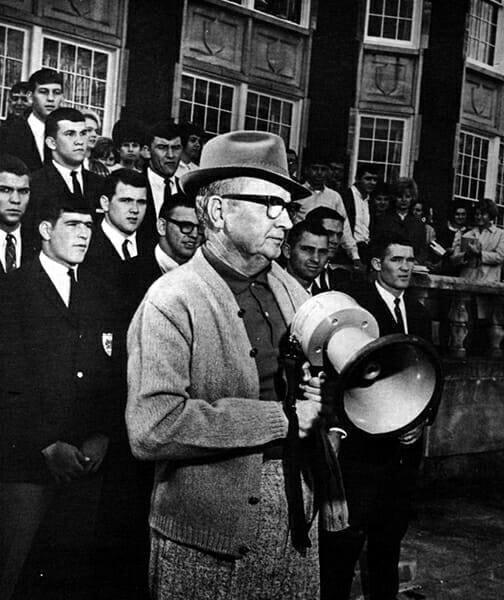 Jacksonville State College Attains University Status
After Daugette’s death in 1942, Houston Cole became the seventh president. During his tenure, more than 20 buildings were completed or begun, including the student center, football stadium, nursing school, and police academy. In addition, Cole oversaw the establishment of the Student Government Association, ROTC program, and the International House program, which pairs American students with foreign-born students to promote language instruction and cultural exchange.
Jacksonville State College Attains University Status
After Daugette’s death in 1942, Houston Cole became the seventh president. During his tenure, more than 20 buildings were completed or begun, including the student center, football stadium, nursing school, and police academy. In addition, Cole oversaw the establishment of the Student Government Association, ROTC program, and the International House program, which pairs American students with foreign-born students to promote language instruction and cultural exchange.
In 1957, the name changed to Jacksonville State College after the first graduate program, a master’s degree in elementary education was created. In August 1966, the State Board of Education (BoE) elevated the college to university status. One year later, the legislature established an independent Board of Trustees for the university and divested jurisdiction from the BoE. Barbara Curry, who enrolled in the fall of 1965, is believed to be the first African American student at Jacksonville State College. She graduated in 1969 with a bachelor of science in education with a concentration in vocational home economics. By 1966, many more African American students and educators began entering classes at JSU.
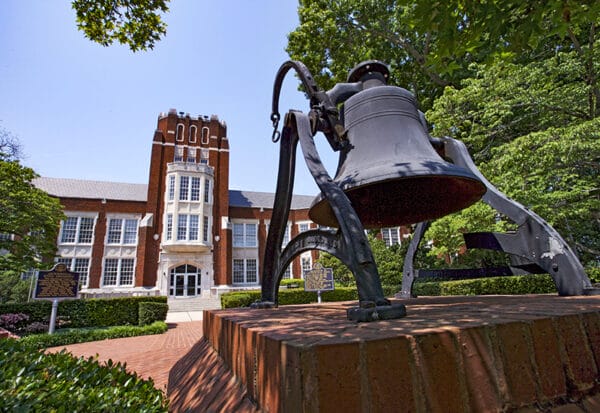 Bibb Graves Hall at JSU
In 1971, former State Superintendent of Education Ernest Stone succeeded Cole as university president. During Stone’s tenure, the school hired many more educators with doctoral degrees, and enrollments increased to more than 6,500. In 1972, the university established JSU Gadsden, a branch campus in Etowah County. Theron Montgomery, a former sociology instructor, became president of JSU in 1981. Under his administration, university departments began seeking individual accreditation for their specific programs, and the Department of Technology was established in 1984. Additionally, a seven-month-long celebration of JSU’s centennial took place, culminating in the dedication of a new courtyard in front of Bibb Graves Hall on February 23, 1983. Also to commemorate the event, the original school bell from Hames Hall on the old campus was given a permanent home in the new courtyard.
Bibb Graves Hall at JSU
In 1971, former State Superintendent of Education Ernest Stone succeeded Cole as university president. During Stone’s tenure, the school hired many more educators with doctoral degrees, and enrollments increased to more than 6,500. In 1972, the university established JSU Gadsden, a branch campus in Etowah County. Theron Montgomery, a former sociology instructor, became president of JSU in 1981. Under his administration, university departments began seeking individual accreditation for their specific programs, and the Department of Technology was established in 1984. Additionally, a seven-month-long celebration of JSU’s centennial took place, culminating in the dedication of a new courtyard in front of Bibb Graves Hall on February 23, 1983. Also to commemorate the event, the original school bell from Hames Hall on the old campus was given a permanent home in the new courtyard.
In 1986, education administrator Harold McGee began his 13-year JSU presidency, during which enrollments increased by 30 percent, $50 million in capital improvements were added, and every eligible professional program was accredited. In addition, the university developed its first master plan and capital campaign, and the JSU Foundation endowment increased to more than $19 million. Also during McGee’s tenure, the school made many technological advances, adding class registration via telephone, individual e-mail accounts, Internet access, online courses, and the use of compressed video to transmit classes. Graduate enrollment exceeded 1,000 for the first time in 1990, and JSU student Heather Whitestone became the first deaf Miss America in 1995.
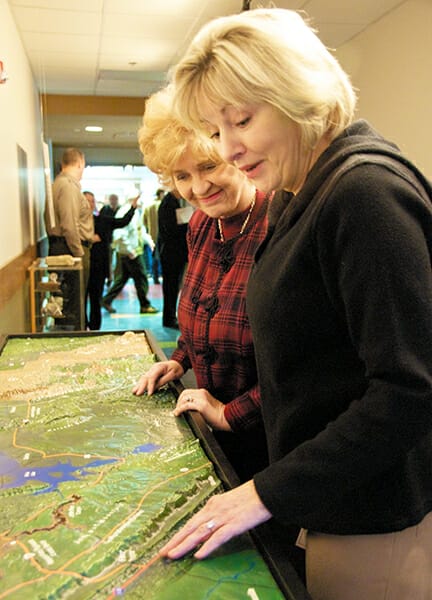 Little River Canyon Center
William A. Meehan, JSU’s eleventh president, began his tenure in 1999. He had received bachelor’s and master’s degrees in biology from JSU and began teaching in the biology department at JSU in 1977, later earning a doctorate of education from the University of Alabama and serving in several administrative positions. Major accomplishments under Meehan have included establishing the Office of Distance Education in December 2004, opening JSU McClellan, a branch campus in Anniston, Calhoun County, in 2003, renovating the Houston Cole Library, and completing the $7 million Little River Canyon Center, which houses the National Park Service’s headquarters for Little River Canyon National Preserve, and JSU’s Little River Canyon Field School. The institution is currently undergoing a major project to increase campus housing and an expansion project at Paul Snow Stadium, which is scheduled for occupation in August 2010. Other accomplishments include the successful launch and completion of a $25 million capital campaign held in conjunction with the university’s 125th anniversary, establishment of the English Language Institute in 2005, and partnerships with four Chinese universities that will open new avenues for the exchange of research, faculty, staff, and students through study abroad programs.
Little River Canyon Center
William A. Meehan, JSU’s eleventh president, began his tenure in 1999. He had received bachelor’s and master’s degrees in biology from JSU and began teaching in the biology department at JSU in 1977, later earning a doctorate of education from the University of Alabama and serving in several administrative positions. Major accomplishments under Meehan have included establishing the Office of Distance Education in December 2004, opening JSU McClellan, a branch campus in Anniston, Calhoun County, in 2003, renovating the Houston Cole Library, and completing the $7 million Little River Canyon Center, which houses the National Park Service’s headquarters for Little River Canyon National Preserve, and JSU’s Little River Canyon Field School. The institution is currently undergoing a major project to increase campus housing and an expansion project at Paul Snow Stadium, which is scheduled for occupation in August 2010. Other accomplishments include the successful launch and completion of a $25 million capital campaign held in conjunction with the university’s 125th anniversary, establishment of the English Language Institute in 2005, and partnerships with four Chinese universities that will open new avenues for the exchange of research, faculty, staff, and students through study abroad programs.
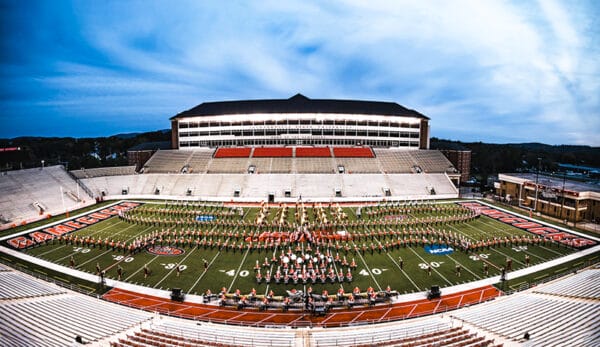 JSU Marching Band
In 2009, JSU’s international community was made up of 234 students representing 71 countries. Overall, students experience a low student to teacher ratio (22:1) and have the opportunity to choose from among more than 100 clubs and organizations while pursuing their degrees. JSU also has a rich tradition in sports. The school’s colors are red and white and its mascot is the Gamecock. It is the only school in the nation to lay claim to National Collegiate Athletic Association (NCAA) national titles in football (1992), men’s basketball (1985), baseball (1990 and 1991), and women’s gymnastics (1984 and 1985). In 2001, placekicker Ashley Martin became the first woman to score in an NCAA football game, kicking three extra points in the Gamecocks’ 72-10 victory over Cumberland University. JSU’s football team competes in the Division I Championship Subdivision of the NCAA. JSU’s marching band and auxiliary unit, the Southerners and Marching Ballerinas, was created in 1956 and has marched in the Macy’s Thanksgiving Day Parade. Jacksonville State University has for many years been referred to as “The Friendliest Campus in the South.”
JSU Marching Band
In 2009, JSU’s international community was made up of 234 students representing 71 countries. Overall, students experience a low student to teacher ratio (22:1) and have the opportunity to choose from among more than 100 clubs and organizations while pursuing their degrees. JSU also has a rich tradition in sports. The school’s colors are red and white and its mascot is the Gamecock. It is the only school in the nation to lay claim to National Collegiate Athletic Association (NCAA) national titles in football (1992), men’s basketball (1985), baseball (1990 and 1991), and women’s gymnastics (1984 and 1985). In 2001, placekicker Ashley Martin became the first woman to score in an NCAA football game, kicking three extra points in the Gamecocks’ 72-10 victory over Cumberland University. JSU’s football team competes in the Division I Championship Subdivision of the NCAA. JSU’s marching band and auxiliary unit, the Southerners and Marching Ballerinas, was created in 1956 and has marched in the Macy’s Thanksgiving Day Parade. Jacksonville State University has for many years been referred to as “The Friendliest Campus in the South.”
In 2018, the university sustained significant damage when an EF-3 tornado struck the campus on March 19, during spring break thereby resulting in very few injuries. The tornado and accompanying large hail damaged many buildings and classes were cancelled for approximately three weeks in the aftermath. Merrill Hall, where the School of Business and Industry was located, and the Alumni House received the most damage and were demolished. Former members of the band Alabama, led by JSU alumnae Randy Owen, headlined a fundraising concert that featured other Alabama acts, including Jason Isbell and the 400 Unit, Jamey Johnson, who also attended JSU, and the band Shenandoah.
Further Reading
- Griffith, Stanford. Tradition of Excellence: Jacksonville State University. Nashville, Tenn.: Booksmith Group, 2008.
- Sawyer, Effie White. The First Hundred Years: The History of Jacksonville State University, 1883-1983. Jacksonville, Ala.: Centennial Committee, Jacksonville State University, 1983.
